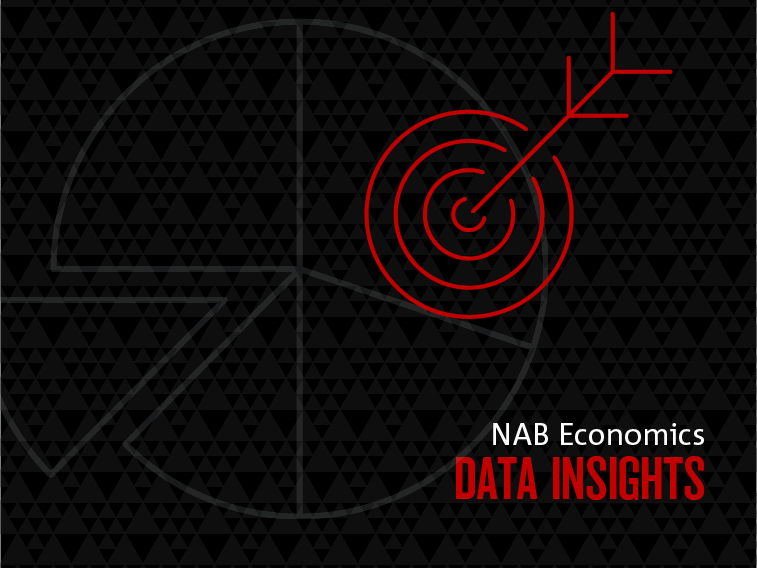Housing market sentiment rallied as national housing price growth accelerated in the March quarter.


Insight
For the week ended August 29, NAB data shows a -2.5% year-on-year fall in overall consumption spending - the first negative read since very early-May.

During these extraordinary times, NAB has taken the decision to publish aggregated customer data categorised by industry segment with the view to helping provide clarity around which segments of the economy have been most affected by the broader macroeconomic trends at play. NAB takes data privacy very seriously. All customer transaction data has been aggregated and no individual’s data is specifically identified or analysed as part of this process. The data used in this report will not be sold or made publicly available, but insights from the data will be shared with the Australian people.
For the week ended August 29, NAB data shows a -2.5% year-on-year fall in overall consumption spending – the first negative read since very early-May. Heavy falls in VIC (-15.0%) – particularly in lockdown areas (-19.5%) – are having a big influence on the national result. That said, spending growth also slowed in all other states (bar NT), and has now stalled in NSW. Across key sectors, spending on Retail Trade is still growing, but at its slowest rate since mid-April. Consumer spending on Hospitality also fell more steeply, as consumers further reduced their spending on accommodation and cafes and restaurants (with the impact from VIC significant).
Total payment inflows into NAB merchants also turned negative. In 6-week moving average terms, they fell -0.5% y/y. By business size, inflows still falling heavily in small firms and corporates, and growing in large and emerging firms (but more slowly). By industry, the story is largely unchanged – inflows weakest in Mining, Hospitality and Transport. Inflows into Other Services are still very robust, with solid (but slower) growth in Arts & Recreation and Retail. Construction has slowed noticeably, as Manufacturing inflows turned negative for the first time since mid-April.
For further details, please .see NAB Data Insights 4 September 2020 Report
© National Australia Bank Limited. ABN 12 004 044 937 AFSL and Australian Credit Licence 230686.